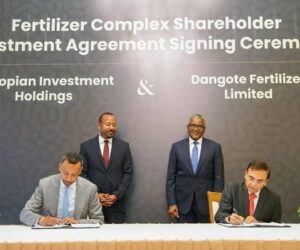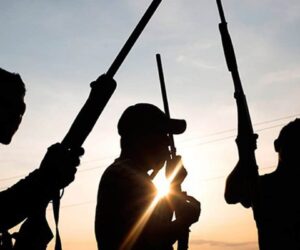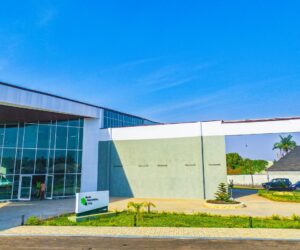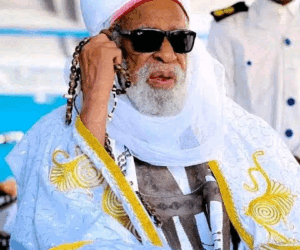For decades, the Maiduguri–Gamboru Ngala road served as one of the most vital arteries in Nigeria’s North-eastern economy. Stretching from the Borno state capital to the border town of Gamboru Ngala, this route once pulsed with life—supporting trade, agriculture, social connection, and humanitarian response. Today, it is largely forgotten, neglected, and broken.
The irony is painful: a road so critical to both commerce and security is also one of the most abandoned. Ask anyone who has dared to travel that axis recently and you’ll hear stories of potholes so deep they resemble trenches, checkpoints so many they feel like barriers, and security threats so constant that the journey becomes a gamble with one’s life.
This is not just a matter of transportation. It is a matter of survival—for border communities like Dikwa, Mafa, Logomani, and Ngala, whose access to food, medical supplies, education, and development depends heavily on this single road.
Before Boko Haram’s insurgency turned the northeast into a battlefield, the Maiduguri–Gamboru road was a trade route that linked Nigeria to Central Africa. It connected us with Cameroon, Chad, and beyond. Livestock, onions, grains, and textiles moved freely. Local farmers found buyers. Businesses thrived. But all that is a distant memory.
Now, humanitarian agencies operating in Borno rely heavily on this road to reach millions of internally displaced persons (IDPs). Yet, every aid delivery is delayed or rerouted because the road has become a logistical nightmare. Trucks get stuck. Convoys move in fear. And communities wait days or weeks for the help they desperately need.
The federal and state governments often tout their commitment to reconstruction in the northeast, but how do you rebuild without roads? How do you rehabilitate displaced people if they cannot return home safely or receive regular support? Infrastructure is not an afterthought—it is the foundation of recovery.
Even the security argument falls flat here. A functional, well-maintained road doesn’t just serve civilians—it helps military and law enforcement patrol effectively, respond to threats quickly, and build presence in once-isolated regions. Bad roads give terrorists the upper hand; good roads give the state a fighting chance.
Sadly, attention and funding continue to be directed toward urban and more politically visible projects—airports, railways, and bridges in cities—while the rural northeast remains a ghost on the government’s development radar. The Maiduguri–Gamboru road is not glamorous. It will not trend on social media. But it matters, deeply.
There are also economic costs to this negligence. Traders from Gamboru Ngala and surrounding LGAs now pay exorbitant transport fees just to get their goods to Maiduguri. Many vehicles refuse to ply the route. Others break down and are abandoned mid-journey. These costs are passed down to already struggling consumers.
The ripple effects touch everything—education, as children cannot access schools in nearby towns; healthcare, as pregnant women are forced to travel impossible distances to reach hospitals; commerce, as markets shrink from lack of supplies and buyers.
And yet, not once in the last two years has the federal government listed the Maiduguri–Gamboru road among its priority reconstruction projects. When public works are mentioned in Borno, they are usually centered on Maiduguri metropolis or the more visible Maiduguri–Damaturu highway. It’s as though the border towns have been written off.
It is also a test of our sincerity in regional integration. If we cannot maintain one of our most important land trade corridors to Cameroon and Chad, then what is the point of ECOWAS or African Continental Free Trade Area (AfCFTA) ambitions? Border trade begins with border infrastructure.
Let’s be clear: rebuilding the Maiduguri–Gamboru Ngala road is not an act of charity—it is a national duty. A functional northeast means a stronger Nigeria. A connected Ngala is a connected nation.
Community leaders, youth groups, traditional rulers, and civil society organizations in Borno have consistently called for this road to be fixed. But they have been met with silence, bureaucracy, or vague promises. How much longer should these communities wait?
If the road were in Abuja or Lagos, it would be under reconstruction within weeks. But in the northeast, communities must beg for what should be automatic. This is the painful injustice of Nigeria’s development imbalance.
The Ministry of Works, North East Development Commission, and federal legislators representing Borno have a duty to speak out and act now. The 2026 budget should not pass without a clear allocation for the Maiduguri–Gamboru road. Not just penciled in for future planning—but funded, contracted, and monitored.
Because no matter how well we speak of peace, progress, and recovery, it all means nothing if we can’t even fix the road that leads to those ideals.
The Maiduguri–Gamboru Ngala road is not forgotten because it is unimportant. It is forgotten because we allowed it to be. It’s time we remembered.








